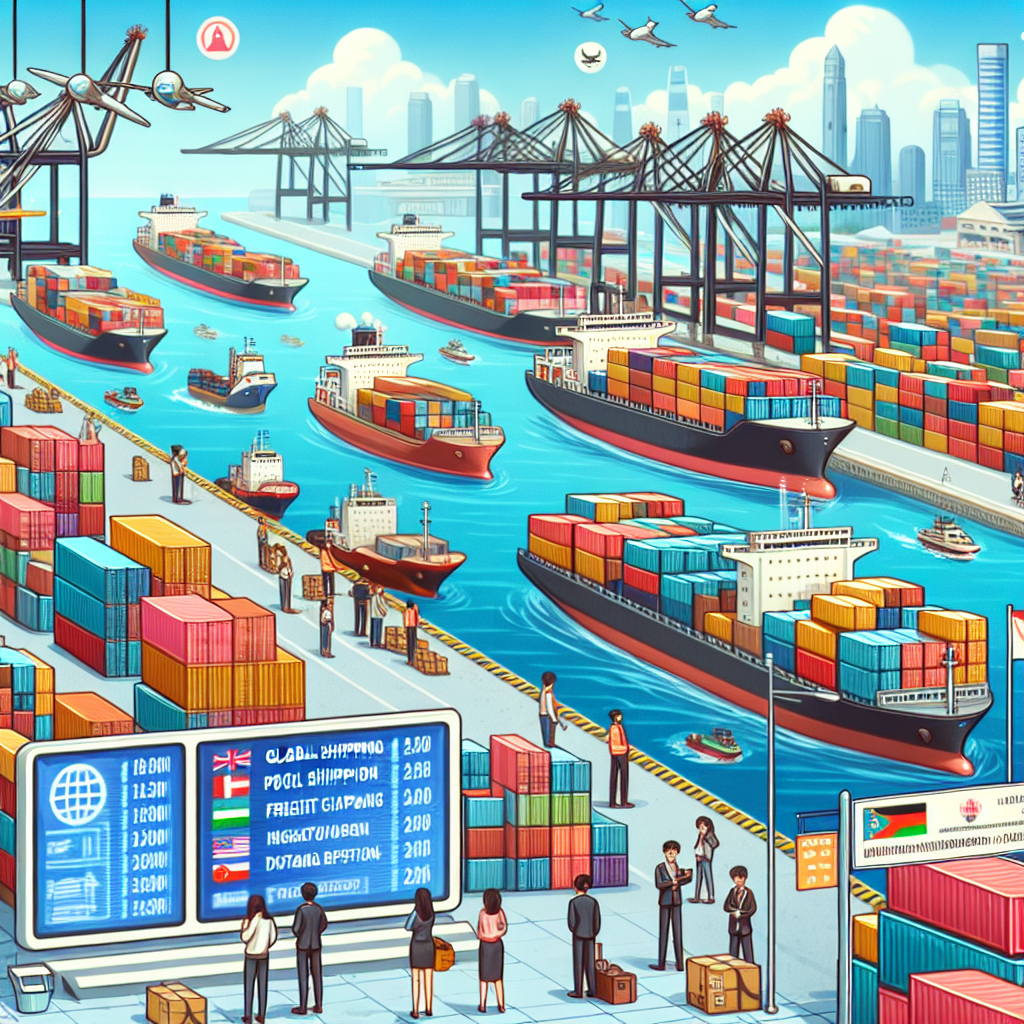The Impact of Global Supply Chain Disruptions on Shipping Costs
Global Supply Chain Disruptions Continue as Shipping Costs Surge to Record Highs
The global supply chain has been facing unprecedented disruptions in recent times, leading to significant challenges for businesses across various industries. One of the major consequences of these disruptions is the surge in shipping costs, which have reached record highs. This article will explore the impact of global supply chain disruptions on shipping costs and the implications for businesses.
The COVID-19 pandemic has been a major catalyst for the disruptions in the global supply chain. Lockdowns, travel restrictions, and social distancing measures have severely impacted the movement of goods and services. As a result, shipping companies have had to navigate through a complex web of challenges, including port closures, reduced capacity, and delays in customs clearance.
These disruptions have led to a significant increase in shipping costs. The demand for shipping services has surged, while the supply has been constrained. This has created a supply-demand imbalance, driving up prices. Additionally, the increased costs of fuel and raw materials have further contributed to the rise in shipping costs.
The impact of these rising shipping costs is felt by businesses across the globe. Small and medium-sized enterprises (SMEs) are particularly vulnerable, as they often lack the financial resources to absorb these additional expenses. Many businesses have been forced to pass on these costs to consumers, resulting in higher prices for goods and services.
Furthermore, the surge in shipping costs has disrupted global trade patterns. Some businesses have had to rethink their sourcing strategies and find alternative suppliers closer to home to mitigate the impact of high shipping costs. This shift in supply chains has led to a reevaluation of global trade dynamics and a potential reshaping of the global economy.
The implications of these disruptions and rising shipping costs extend beyond individual businesses. They have wider ramifications for the global economy. The increased costs of shipping can lead to inflationary pressures, affecting consumer purchasing power and overall economic growth. Moreover, the disruptions in the global supply chain have highlighted the vulnerabilities of the interconnected global economy, emphasizing the need for resilience and diversification.
To address these challenges, businesses need to adopt a proactive approach. They must closely monitor the evolving situation and adapt their supply chain strategies accordingly. This may involve diversifying suppliers, exploring alternative transportation modes, or investing in technology to enhance supply chain visibility and agility.
Collaboration and communication are also crucial in navigating through these disruptions. Businesses need to establish strong partnerships with their suppliers, shipping companies, and other stakeholders to ensure a smooth flow of goods and information. By working together, they can identify potential bottlenecks and find innovative solutions to mitigate the impact of disruptions on shipping costs.
In conclusion, the global supply chain disruptions caused by the COVID-19 pandemic have resulted in a surge in shipping costs to record highs. This has created significant challenges for businesses, particularly SMEs, and has disrupted global trade patterns. The implications of these disruptions extend beyond individual businesses and have wider ramifications for the global economy. To navigate through these challenges, businesses need to adopt a proactive approach, focusing on resilience, diversification, and collaboration. By doing so, they can mitigate the impact of disruptions on shipping costs and ensure the smooth functioning of the global supply chain.




